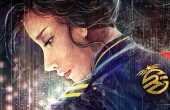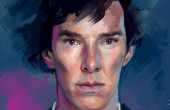mmclaughlin102
Contributing writer for The Artifice.
Contributor I
- Plebian Penman
- Lurker
- Sharp-Eyed Citizen
- ?
- Articles
3 - Featured
3 - Comments
6
- Ext. Comments
6 - Processed
4 - Revisions
4
- Topics
4 - Topics Taken
4 - Notes
5
- Topics Proc.
6 - Topics Rev.
0
- Points
662 - Rank
X - Score
292
Latest Articles
Latest Topics
Marvel: A Split World with Growing Divide?The MCU is timeless and well loved by many–both in its decades of comics, and in their evolution to a for-the-screen franchise. Afterall, the MCU was irreversibly expanded with Iron Man’s debut in 2008, and the 30 movies to follow. Amid these movie’s grandness, however, shows such as "Agents of Shield" served to fill in the gaps. They were not necessary for understanding the plot of each new movie, though they added extra glimpses of the MCU that the movies missed. More than this, they helped to tie eager audience’s over while each new movie was in production. In recent years, however, the role of MCU shows seems to have changed. Without watching "WandaVision", audiences would only have half the story of Wanda’s fall in "Doctor Strange: Multiverse of Madness." Without "Hawkeye," audiences would lack the entirety of Kate Bishop’s introduction to the MCU. In short, Marvel tv shows no longer seem to be the periphery stories they once were. More and more, the plot points, characters and events in these shows are pivotal to understanding the movie that comes next. One might claim this new emphasis has incited new investment in these shows–a depth of quality necessary for matching their film counterparts. At the same time, is the new weight placed on these shows too great? One of the most wonderful aspects of watching the Avengers movies, from first to last, was the shared experience for the audience. Each new movie was an event in itself, a key step toward where every arc intersected. But the necessity of MCU shows has created a far less linear path–one that is near impossible to follow without a subscription to DisneyPlus. Have the quality and value of MCU films been diluted by their television counterparts? Were MCU shows more enjoyable without the pressure of their greater plot stakes? Has the MCU simply spread itself too thin? While the MCU’s magic seems to be rooted in its ability to carefully weave many plots into one, have its shows thrown too many threads into the mix? For any franchise to remain in the public eye, it has to keep their attention–though one might wonder if MCU shows are the best way to do this. This article could go in a couple of different directions–both in support, or against MCU shows-examining one, or many. This is just a change I feel has greatly impacted the MCU in recent years, and one that might be interesting to examine. |
How have streaming services altered the quality of modern entertainment?In looking at how film entertainment has evolved over the years, an especially drastic shift can be seen in the boom of streaming services that followed the Covid-19 Pandemic. At first, these services appeared to be a saving grace of comfort and convenience–allowing one the ability to still bring the luxury of a movie theater into their own home, allowing one to catch up on the newest flicks with a subscription and a click. Though as the world now struggles to mesh the “New Normal” with the normal we all used to know, these streaming services show no signs of slowing down. According to CNBC, the U.S. has given up around 3,000 theater screens since 2019–and those that remain are now tasked with finding ways to remain relevant. In short, the public seems reluctant to dive fully back into the old movie magic of the theater. But what have these screens been traded for? Each streaming service is a world tasked with populating itself full of movies and shows to keep its audience’s attention–but what do these services sacrifice in the process? Have streaming services begun to trade quality for content, pushing titles with big names and no stories just to fill their slots? What has been lost in the experience of seeing a movie for the first time in theaters now that everything can be watched from one’s couch? Are these changes beneficial, or a deficit to the quality of modern entertainment? This article could go in a number of directions–exploring particular movie franchises, or the evolution of certain streaming services overall. This just seems to be a relatively new phenomenon of the last decade, but one that has altered what and how we watch in extremely poignant ways. |
Increased Film and Television Adaptations of Popular Video GamesThrough the ever growing search for new source material in television and film, many have turned to mining from the stories lying dormant in video games. With a previously established plot, characters and fanbase, video-games have come to provide a steady map for writers and directors to follow in trying to make a show or film with increased odds of success. In a way, such adaptations are almost adjacent to bringing one's favorite book series to life on the screen, just from a different angle. In recent years, however, this trend seems to have gained steam. Afterall, it seems as though each day a new streaming service pops up out of nowhere–along with a new and sudden need for stories to fill them. Netflix's "Arcane: League of Legends" based on League of Legends by Riot Games. Three separate movies (2001, 2003, and 2018) inspired by Core Design's Tomb Raider. HBO's acclaimed hit "The Last of Us," sprouted from Sony Interactive Entertainment's game by the same name. These are just a few examples from the past couple years, and it is unlikely they will be the last. As with any adaptation, though, one has to ask whether the original source material is being accurately represented. How true can one stay to the story of a video game when the story is determined with each person playing it? Do video games lend themselves better or movies or tv series? Are certain gaming formats easier to adapt than others? What makes a game especially well suited for translation to the screen? This article could be taken in a number of different directions, such as focussing on the validity of one adaptation, or trends that seem to exist across many. Overall, though, I just felt there have been many comparisons between book and film adaptations, and that video games might be the next contender to enter this ring of debate and analysis.
|
The Evolution and Endurance of Star Wars Through the AgesStar Wars is arguably one of the most influential sagas ever created-it's tales have touched countless lives over the past several decades. Explore what makes these stories so powerful, why they have stood the test of time and how have they grown to live through so many generations of fans. Is it the characters? The plots? Something else completely? What adaptations has Star Wars embodied to remain a timeless tale that so many have connected with?
|
Latest Comments
| The Appeal of Wednesday Addams | |
This is an amazing article! I always thought that the Mandalorian simply adopted Western echoes to help make it relevant and relateable. Your article, however, openned my eyes to the real nuance of Mando’s character–both in his adherance to the cowboy trope, and his departure from it. This combination of the two is what makes him such an entrancing character–but I did not realize this until reading your article! I also never realized there were so many reflections of Western films and other Star Wars films in the Mandalorian’s cinematography. Thank you for making these connections! | The Mandalorian’s Response to the Western Genre |
This was an awesome article! I just recently read “Othello,” and I completely agree with your anaylsis of Iago. In a way, he almost reminds me of Lady Macbeth–both being incredibly maniplative, deceitful and cruel villains. But Iago seems to bring these pitfalls to new heights in how deeply engrained deceit has become in his being. My Professor pointed out that one of his most shocking lines is “I am not what I am,” a true testament to the fact that he is willing to become whatever he must be to attain power–even if it is at the cost of his own sense of identiy, and humanity. | Iago - The Perfect Villain |
This is a very intersting interpretation-I haven’t read any of Jane Austin’s work, though I’ve heard about the influentialness of her writing and how compelling her characters are. People can connect with and understand characters in very different ways, and this was a very fascinating exploration of Emma. Looking at the historical context and greater implications of how her character gave your article a lot of depth and range. Its also very interesting to ask ourselves what being the hero of our own story really means, and it was very cool how you invoked this question in your article. | Jane Austen's 'Emma': How Austen Writes an Independent Woman |
This was a very well written and very powerful article. Our experiences shape us in so many ways–it makes sense that our artisitic expression would be shaped by our experiences too. I never knew about this particular aspect of Japanese art, and how extensively and deeply the devisation of the Atomic Bomb has influenced it. Your article is a strong example and advocate of why it’s so important to consider other perspectives, and how big the world is beyond our own way of seeing things. | The Legacies of the Atomic Bomb in Anime |
You did a great job with this article, and the position you took was very interesting to read about. I really enjoyed how you highlighted the tragic similarties that bonded Gatsby and Daisy, along with the grave differences that kept them apart. It was especially striking how you identified Daisy as the unatainable love Gatsby could never reach–even after he tried to bring himself closer to her by becoming just as elusive, shrouded in stories that made him seem larger than life. I just read this book last year and it was really interesting to here someones else’s anaylsis of this classic work. Awesome job! | Daisy Buchanan: Love, Folly and Money in The Great Gatsby |



This was a great article! I never realized that Wednesday Adams had been remade so many times over the years. It’s very interesting to see the maintained traits that have been carried through every adaptation–the somber but steady outsider persona. Though it is also fascinating to see how each adaptation tries to balance these strong traits within the different angles of retelling that they all take.